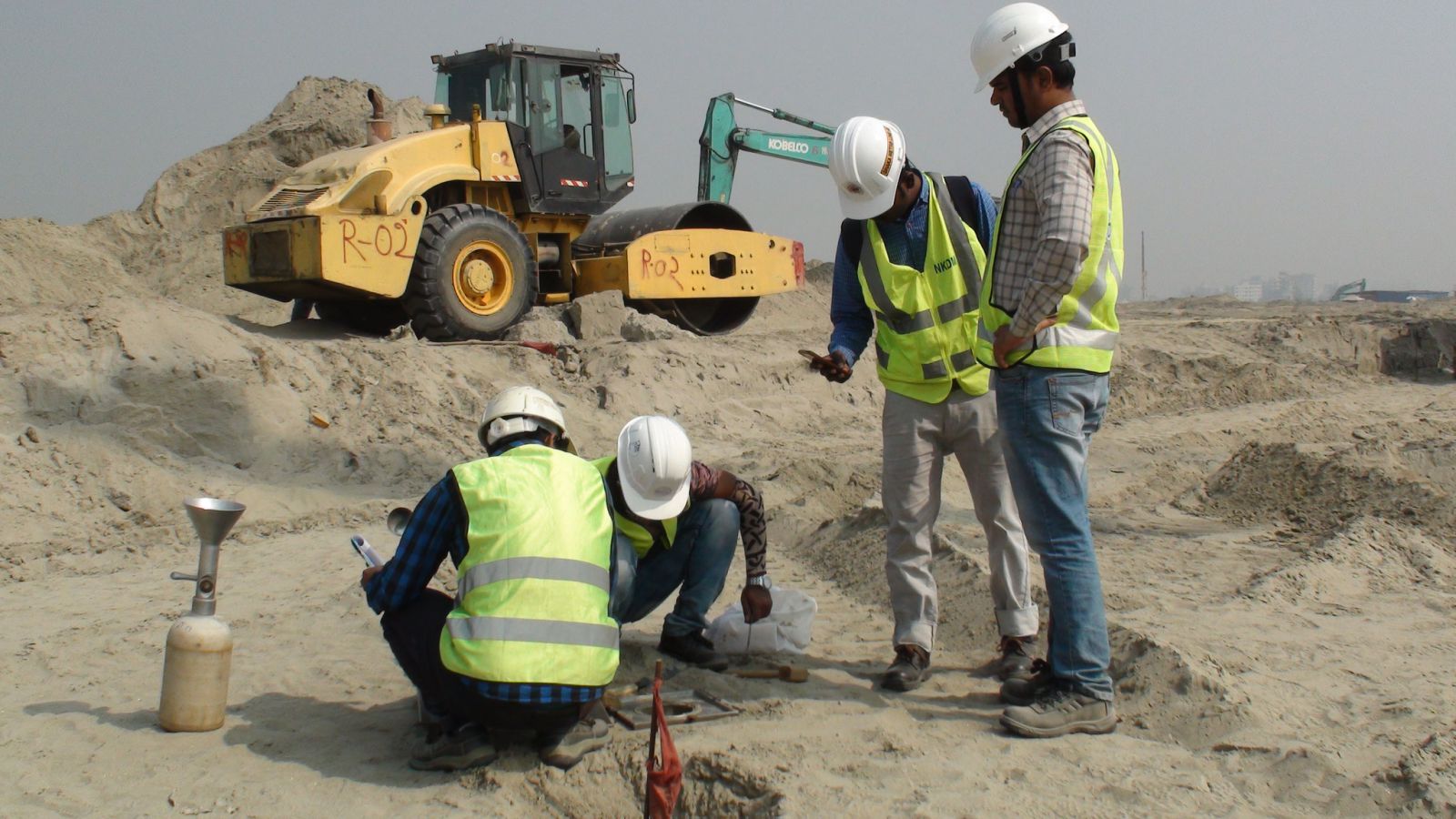What Does an Engineer of Record Do? Recognizing Their Vital Obligations
What Does an Engineer of Record Do? Recognizing Their Vital Obligations
Blog Article
The Interdisciplinary Approaches in the Geotechnical Industry: Linking the Gap In Between Design, Geology, and Environmental Science for Optimal Project End Results
The assimilation of engineering, geology, and ecological science within the geotechnical sector is not merely beneficial; it is imperative for achieving optimal project results. What techniques might arise to facilitate this vital partnership and boost the effectiveness of geotechnical techniques?
Significance of Interdisciplinary Collaboration
The importance of interdisciplinary partnership in the geotechnical market can not be overemphasized. Efficient geotechnical projects need the assimilation of varied know-how from numerous areas, consisting of design, geology, and environmental science. This collaboration guarantees that all facets of a project are taken into consideration, causing comprehensive remedies that address complicated challenges.
When functioning in isolation,Interdisciplinary cooperation promotes development by making it possible for professionals to share understandings and methodologies that might not be evident. By leveraging the staminas of multiple self-controls, teams can determine possible risks, enhance design procedures, and improve the sustainability of geotechnical tasks. Such collaboration advertises an alternative understanding of site-specific problems, which is critical for accurate analysis and decision-making.
The intricacy of geotechnical projects demands a worked with strategy to analytical. Eventually, interdisciplinary cooperation is important for advancing best practices and achieving quality in the geotechnical sector.
Key Roles of Each Technique
Collaboration amongst numerous disciplines is not just advantageous; it is vital for the successful implementation of geotechnical jobs. Each discipline-- engineering, geology, and environmental science-- plays an unique yet interconnected role that contributes to project efficacy and sustainability.
Geotechnical engineers are mainly responsible for developing foundations and making sure architectural stability. They assess dirt and rock residential or commercial properties to analyze load-bearing abilities, offering important data for risk-free construction practices. Their experience makes it possible for the formula of cutting-edge services to complex obstacles.

Environmental researchers examine the potential effects of construction on communities and water resources. They carry out environmental assessments and establish mitigation approaches to decrease negative results. By incorporating environmental factors to consider, they make certain conformity with policies and advertise sustainability throughout the project lifecycle.
Study of Effective Assimilation
Effective assimilation of geotechnical self-controls can be exhibited through different study that highlight the effectiveness of synergy in attending to intricate engineering obstacles. One noteworthy instance is the building and construction of the Hong Kong-- Zhuhai-- Macau Bridge, where a collaborative technique including geotechnical design, geology, and environmental scientific research was vital. Engineers and rock hounds worked in unison to examine the seabed conditions and enhance the structure design, ensuring stability and reducing ecological impact.
One more impactful situation is the renovation of incline stability in the San Francisco Bay Location, where an interdisciplinary team incorporated geotechnical evaluation with environmental analyses. By incorporating geological studies and hydrological research studies, the team properly identified possible landslide risks and implemented effective reduction measures, improving security and sustainability.
Moreover, the redevelopment of Brownfield websites frequently needs a multidisciplinary technique. In one instance in Chicago, cooperation among geotechnical designers, environmental scientists, and urban organizers caused the effective remediation of infected soil, permitting for the risk-free change of the website right into an area park. These study show that interdisciplinary cooperation not just addresses technical difficulties however likewise cultivates ingenious options that benefit both projects and neighborhoods.
Difficulties in Multidisciplinary Projects

In addition, coordinating timetables and process among numerous teams can be bothersome, especially when each self-control has unique task milestones and deliverables. This imbalance can lead to delays and boosted costs. The obstacle of source allotment also impends large; ensuring that specific know-how is offered at critical points requires cautious preparation and foresight.
Last but not least, regulative conformity positions an additional significant obstacle. Each discipline might face various regulatory structures, and lining up these needs to fulfill project objectives can be complex and lengthy. Resolving these challenges requires solid leadership and efficient interaction techniques to cultivate collaboration and guarantee that multidisciplinary teams function cohesively in the direction of shared goals.
Future Trends in Geotechnical Practices
As the geotechnical sector evolves, emerging patterns are improving practices to address the difficulties encountered in multidisciplinary tasks - consulting engineer. One significant fad is the increased integration of innovative technologies, such as expert system and equipment learning, right into geotechnical analysis and design. These technologies enhance predictive modeling and danger assessment, allowing engineers to make even more educated decisions throughout the project lifecycle

Additionally, the fostering of electronic doubles and real-time surveillance systems is coming to be extra prevalent. These tools facilitate ongoing assessment of soil problems and structural efficiency, permitting timely treatments when concerns occur.
Verdict
In conclusion, the integration of engineering, geology, and environmental science is important for attaining optimal results in the geotechnical sector. Interdisciplinary cooperation geo tech engineer promotes technology, boosts analytic abilities, and lines up technical requirements with environmental sustainability. Effective study show the benefits of this approach, while recognizing the obstacles faced in multidisciplinary jobs. Looking ahead, welcoming these joint methods will be essential for navigating future fads and progressing the field of geotechnical design.
The combination of design, geology, and ecological science within the geotechnical sector is not simply advantageous; it is vital for accomplishing optimum job results. Reliable geotechnical jobs call for the assimilation of diverse knowledge from numerous fields, consisting of engineering, geology, and ecological science.Browsing the complexities of multidisciplinary jobs in the geotechnical industry offers several substantial challenges.As the geotechnical sector develops, emerging patterns are improving techniques to deal with the obstacles faced in multidisciplinary tasks. Geotechnical engineers are progressively collaborating with environmental scientists to make certain that jobs straighten with sustainability objectives and abide with regulatory demands.
Report this page